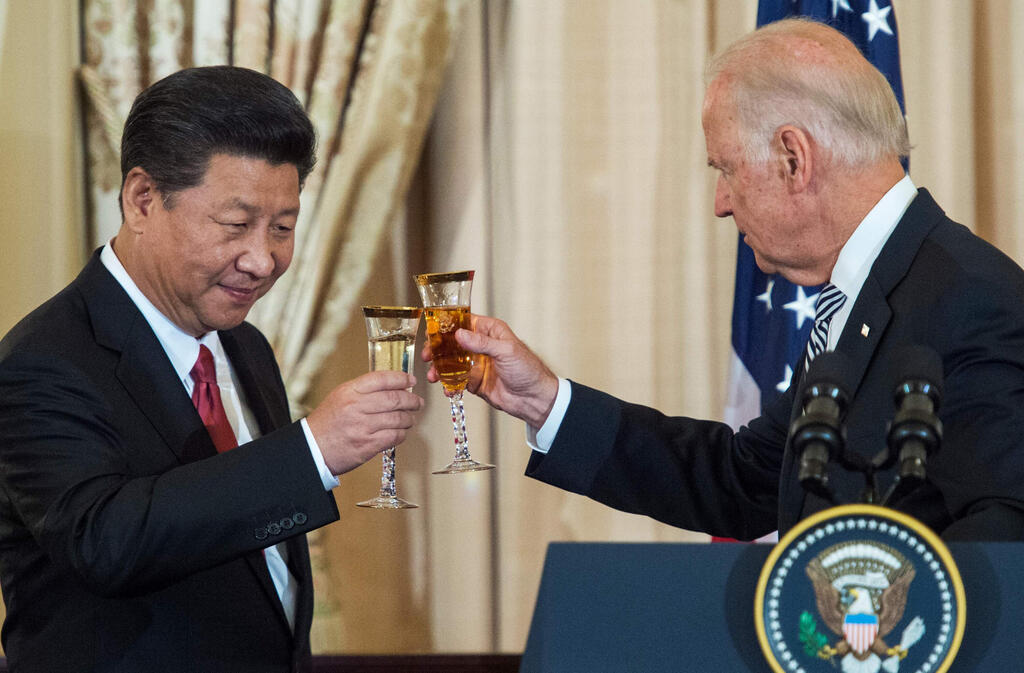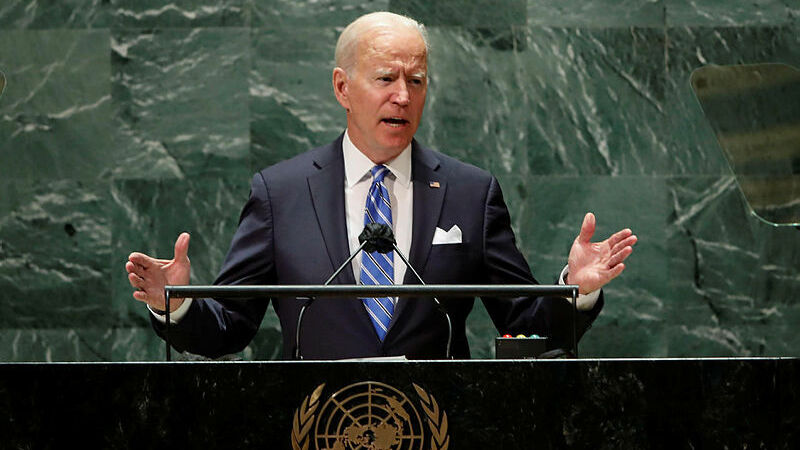Getting your Trinity Audio player ready...
U.S. President Joe Biden on Tuesday told the United Nations General Assembly that the United States was committed to preventing Iran from obtaining nuclear weapons.
Speaking at the UNGA on Tuesday, Biden said the United States remained "committed to preventing Iran from getting a nuclear weapon," and was willing to return to the 2015 deal if Tehran returns to compliance.
Iran said on Tuesday that talks with world powers over reviving its 2015 nuclear deal would resume in a few weeks, the official Iranian news agency IRNA reported.
"Every meeting requires prior coordination and the preparation of an agenda. As previously emphasized, the Vienna talks will resume soon and over the next few weeks," Iranian Foreign Ministry spokesman Saeed Khatibzadeh said, according to IRNA.
The world powers held six rounds of indirect talks between the United States and Iran in Vienna to try and work out how both can return to compliance with the nuclear pact, which was abandoned by former U.S. President Donald Trump in 2018.
The Vienna talks were adjourned in June after hardliner Ebrahim Raisi was elected Iran's president and took office in August.
Biden in his speech at the UN reiterated the U.S. position that a two-state solution was needed to resolve the Israeli-Palestinian conflict but said his country's commitment to Israel's security remains steadfast.
Biden defended the chaotic U.S. withdrawal from Afghanistan during the speech, arguing it was a necessary step to pivot U.S. policy to focus on a global challenge from anti-democratic systems, the COVID-19 pandemic and climate change.
"We've ended 20 years of conflict in Afghanistan and as we close this era of relentless war, we're opening a new era of relentless diplomacy," Biden said, making his first appearance as president at the U.N. General Assembly.
Facing criticism of the Afghan pullout, Biden vowed to defend vital U.S. national interests, but said "the mission must be clear and achievable," and the American military "must not be used as the answer to every problem we see around the world."
Biden hoped to present a compelling case that the United States remains a reliable ally to its partners around the world after years of "America First" policies pursued by his Republican predecessor Donald Trump.
Biden said the world is facing a decisive decade and that addressing a variety of challenges "will hinge on our ability to recognize our common humanity." He said that "instead of continuing to fight the wars of the past, we are fixing our eyes" on challenges such as the global pandemic, addressing climate change, cyber threats and managing the shift of "global power dynamics."
Biden mapped out a new era of vigorous competition without cold war in his first United Nations address on Tuesday, promising restraint from the U.S. military and new commitments to cope with climate change.
The United States would help resolve crises from Iran to the Korean Peninsula to Ethiopia, Biden told the annual U.N. General Assembly gathering.
The world faces a "decisive decade," he said, and leaders need to work together to fight a raging coronavirus pandemic, a warming planet and cyber threats. He said the United States would double its financial commitment on climate aid and spend $10 billion to fight hunger.
Biden didn't address America's rising authoritarian competitor, China, directly but sprinkled implicit references to Beijing throughout his speech, as the United States butts heads with China in the Indo-Pacific and on trade and human rights issues.
3 View gallery


Then vice president Joe Biden with Chinese President Xi Jinping meeting in Washington in 2015
(Photo: AFP)
He said the United States will compete vigorously, economically and to push democratic systems and rule of law.
"We'll stand up for our allies and our friends and oppose attempts by stronger countries to dominate weaker ones, whether through changes to territory by force, economic coercion, technical exploitation or disinformation, but we're not seeking - I'll say it again, we are not seeking a new Cold War or a world divided into rigid blocs," he said.
His vow for allied unity is being tested by a three-way agreement between the United States, Australia and Britain that undermined a French submarine deal and left France feeling stabbed in the back.
Biden, a Democrat, hoped to present a compelling case that the United States remains a reliable ally to its partners around the world after years of "America First" policies pursued by his Republican predecessor Donald Trump.
Overcoming global challenges "will hinge on our ability to recognize our common humanity," he said.
Biden told the General Assembly that he would work with Congress to double funds by 2024 for helping developing nations deal with climate change to $11.4 billion per year, which would help achieve a global goal set more than a decade ago to mobilize $100 billion per year to support climate action in vulnerable countries.
"In April, I announced the United States will double our public international financing to help developing nations tackling climate crisis. Today, I'm proud to announce that we'll work with the Congress to double that number again, including for adaptation efforts, to make the United States the leader of public climate finance," he told world leaders.
First published: 18:47, 09.21.21



